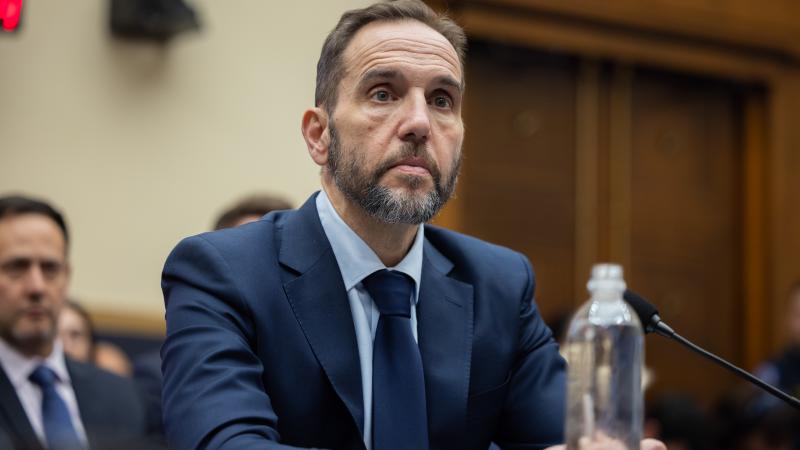Rescinded or not, ex-military members still ask SCOTUS to take up Defense Dept's COVID vax mandate
Even after the DOD COVID vaccine mandate was rescinded, unvaccinated military members still faced repercussions, including denied benefits, ineligibility for promotion, and being non-deployable.
The Defense Department's COVID-19 vaccine mandate has been rescinded, but two ex-service members are still asking the Supreme Court to consider its constitutionality – in a case with the potentiality to have significant implications as to whether a future mandate can be implemented.
On Tuesday, the petition for a writ of certiorari for Robert v. Austin was placed on the Supreme Court’s docket, meaning the justices will have to decide whether to hear the case. Four of the nine must choose to take up the case.
The case centers on the legality of the department's COVID vaccine mandate, and “[w]hether the government may properly force citizens to receive an experimental gene-modifying injection.”
The lawsuit was initially filed in August 2021 in the U.S. District Court for the District of Colorado, which dismissed the complaint as non-justiciable.
The suit was then appealed to the Tenth Circuit Court of Appeals, which dismissed it as moot this past July.
After the plaintiffs' failed request to have the appeals court hear the case en banc – meaning all the court’s judges would rehear the case – it was appealed to the Supreme Court.
The plaintiffs in the case are former Army member Dan Robert and Hollie Mulvihill, who was in the Marine Corps. Each left the military while the lawsuit was pending before the Tenth Circuit Court of Appeals, which the appeals court noted in its dismissal.
The defendants are Defense Secretary Lloyd Austin, Secretary of Health and Human Services Xavier Becerra and Food and Drug Administration Commissioner Robert Califf.
HHS and FDA didn't immediately respond to requests for comment on Friday.
DOD declined to comment on pending litigation, but referred Just the News to the Department of Justice Office of Public Affairs for comment. The DOJ didn't immediately respond to a request for comment on Friday.
Last December, President Biden signed the National Defense Authorization Act, the $858 billion defense spending bill that included a measure repealing the mandate.
On Dec. 29, the Defense Department followed suit, rescinding the mandate that resulted in the discharge of over 8,000 service members who refused the vaccine.
In January, the defense secretary issued another memo, stating that military branch commanders may consider a service member's vaccination status "in making deployment, assignment, and other operational decisions, including when vaccination is required for travel to, or entry into, a foreign nation."
Military lawyer R. Davis Younts told Just the News on Friday that the Tenth Circuit Court of Appeals “delayed ruling” on the case “until after the mandate was repealed by Congress.”
After the mandate was rescinded, the appeals court said the case was moot, Younts explained.
He also said the best argument the case has is the “exception to the rule for the case being moot,” which is that the “issue is escaping review but capable of repetition.”
This means that a similar mandate could be issued again, then either Congress or the DOD could repeal it before a court could rule on the legality of it, Younts argued.
“The issue is, can the DOD order military members to take EUA products that the DOD says they believe is interchangeable somehow with a fully-approved FDA product?" he said. "How does the DOD have the authority to say magically that a legally distinct formula is interchangeable?”
Younts also said Congress didn’t intend for the DOD to be able to make such decisions.
The military can only legally force service members to receive vaccines that are fully approved by the FDA, not those under FDA emergency use authorization (EUA).
While Pfizer-BioNTech’s Comirnaty vaccine was fully approved by the FDA, the Pfizer-BioNTech COVID-19 vaccine under EUA is not fully approved. Despite being identical vaccines, they are legally distinct.
“In the midst of this, I still have clients who have been told to get the COVID vaccine for deployments and other things,” Younts said.
The Supreme Court will make their decision on whether to take up the case in early January, Younts said.
However, Younts fears the high court might not take the case.
While he believes Justices Neil Gorsuch and Clarence Thomas would be interested, he’s not sure whether there are two other justices who would join them.
Even after the DOD COVID vaccine mandate was rescinded, unvaccinated military members still faced repercussions, including denied benefits, ineligibility for promotion, being non-deployable and potentially diminished employment prospects for those already discharged.
For example, Brandi King, an Air Force reservist who was reprimanded after seeking religious exemptions to the military vaccine mandate, was just assigned last month to a new position and received her promotion.
She was notified of her promotion about seven months late and had been in limbo status with the Reserve for over a year.
Multiple lawsuits were filed over the DOD’s mandate but have ended because the mandate was rescinded.
Liberty Counsel had two cases against the mandate: Navy SEAL 1 v. Austin and Colonel Financial Management Officer, et al. v. Austin, and received $1.8 million in attorney’s fees and costs in a settlement agreement from the Pentagon this year after the mandate was rescinded.













